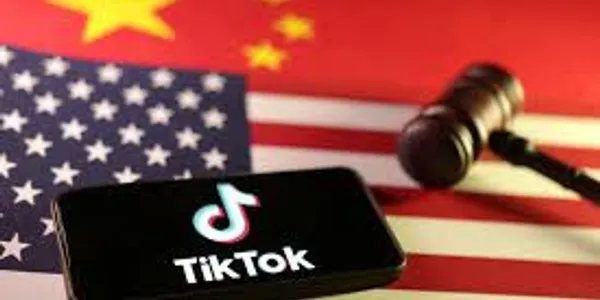TikTok Sale Deadline Looms as U.S. Divestiture Deadline Nears
By: Dr. Kirkpatrick Williams
TikTok is facing a potential ban in the United States this Thursday unless its Chinese parent company, ByteDance, completes the divestiture of its U.S. operations. The fast-approaching deadline caps a multi-year effort by federal regulators, lawmakers, and courts to address concerns over national security and data privacy.
The divestiture requirement originates from the Protecting Americans from Foreign Adversary Controlled Applications Act (PAFACA), which was passed by Congress in April 2024 with broad bipartisan support and signed into law by President Biden. Under the law, ByteDance was initially given until January 19, 2025, to divest its U.S. TikTok assets or face a nationwide ban on the platform. President Trump extended that deadline twice via executive orders in January and April, but the final deadline, June 19, 2025, is now firm.
Federal officials maintain that TikTok’s Chinese ownership poses a significant risk, alleging the app could be used by the Chinese government to collect data on U.S. citizens or to influence political discourse. Proponents of the law argue that as long as ByteDance retains controlling interest, those risks remain. The divestiture requirement has faced legal challenges from TikTok and civil liberties groups, who argue the move threatens free speech and sets a dangerous precedent. However, courts have upheld the law, and in December 2024, the Supreme Court declined to block enforcement, affirming the constitutionality of the national-security rationale.
ByteDance has pursued negotiations with several high-profile U.S. companies and investors, including Amazon, Oracle, Project Liberty, Shark Tank investor Kevin O’Leary, and YouTube personality MrBeast. While these parties have expressed interest in acquiring TikTok’s U.S. operations, no deal can proceed without approval from Beijing. Chinese regulators have thus far withheld that approval, citing concerns about national economic security and intellectual property. These talks have unfolded against the backdrop of broader U.S.-China trade negotiations, with recent tariff agreements possibly paving the way for compromise, but so far, no final breakthrough has emerged.
As the June 19 deadline approaches, ByteDance maintains that it is committed to finalizing a deal, but insists that progress hinges on Chinese government approval. President Trump has indicated he is open to a third extension, but only if a credible and imminent agreement is on the table. Meanwhile, Senators Ed Markey, Cory Booker, and Ron Wyden are urging Congress to consider a statutory extension, arguing that relying on temporary executive actions creates confusion for consumers, investors, and developers.
If a U.S.-based buyer is approved and the divestiture is completed, TikTok would continue operating in the U.S. under new ownership, with additional legal guardrails in place to limit foreign influence and secure user data. If no deal is finalized, however, app stores such as Apple’s App Store and Google Play would be required to remove TikTok, and U.S.-based internet service providers would be barred from supporting the platform, effectively rendering it inoperable within the country. A partial shutdown remains a possibility, similar to the temporary outage TikTok experienced in January following the initial phase of enforcement.
As the clock ticks down, the outcome remains uncertain. With national security, tech regulation, and international diplomacy converging in the final hours, the fate of TikTok in the U.S. now hinges on what unfolds over the next three days. Whether it results in a sale, another delay, or a ban, the decision will reverberate well beyond social media, shaping the future of digital governance in an era of geopolitical tech rivalry.
